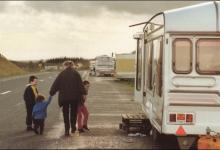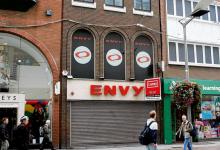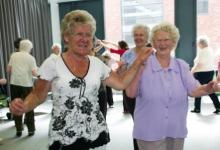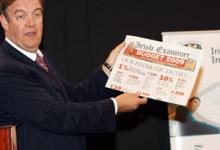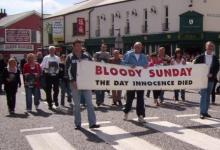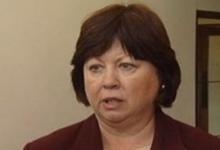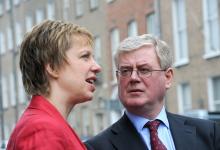Society
Travelling community assists with Ireland's overseas aid effort
A new initiative in Ballyfermot looks to give Travellers a voice on overseas development issues, drawing on their experiences of inequality in Ireland. By Colin Murphy.
Anne Garvey has a trick she uses to show her classes how the world's riches are divided. She uses chairs to represent each continent’s resources, and then divides the class amongst them to represent population. North America ends up with two students stretched across a row of chairs; Africa is one chair with three people trying to balance on it.
Commercial rack rents persist despite new law
Despite a law change in January, upward-only rent reviews continue to affect tenants with leases signed prior to 1 March 2010. Struggling shopkeepers hoping for a rent review remedy will be kept waiting. By Sandy Hazel.
The Land and Conveyancing Law Reform Act 2009 includes a key provision which renders ineffective the traditional upward-only rent review clause. However, this does not apply to leases signed before the commencement of the Act.
Making 'good society' requires radical change
On April 23, the Carnegie UK Trust launched a new report into the creation of a 'good society'; their findings suggest radical change is needed.
In one particular episode of The Simpsons, Homer exclaims jubilantly to his long suffering wife: "Hey Marge! Look at me, I'm reading the Economist! Did you know Indonesia is at a crossroads?" Today, you don't need to read the Economist to realise Ireland is at a crossroads or, as Peter Cassells called it, a "turning point".
(Pictured: North Clondalkin CDP protest)
Mainstream media criticised by politicians
At the Committee meeting for Health and Children yesterday, RTE and the Irish Times were criticised for their lack of coverage of the See Change campaign. By Shane Creevy.
The See Change campaign, launched April 15, is an attempt to lower the level of suicide in Ireland by normalising mental health disorders.
Recounting the Troubles unsettling but necessary
January 1972 began with hopes of a new year and a new beginning in Northern Ireland. Newspapers and religious authorities were optimistic, as was a clairvoyant who we might consider amusing in his ineptitude were it not for the grim reality of the year that followed.
Because 1972 was, simply, one of the the worst years of the Troubles. Within the first hour of January eight bombs went off in Belfast. There would be a further 379 bombings in the same month alone, setting the tone for a vicious year of violence.
A political showdown on universal health care
The idea of universal healthcare is gaining public and political momentum in Ireland. But the current government is unwilling to make strides in this direction. By Sara Burke.
Last week the Irish Medical Organisation launched a document on universal healthcare coverage and the Adelaide Hospital Society held a conference on financing and organising social health insurance in Ireland. What did the respective bodies have to say and where do our political health leaders stand on these proposals?
Ireland ‘sleepwalking’ into an energy crisis
A scientist and economist have linked the current financial crisis to an increase in oil consumption. Ireland's energy strategy is utterly inadequate, says Eddie Hobbs. By Vincent Ryan.
Global daily oil consumption could be represented thus: an unbroken thread of oil barrels, standing lip to lip, looped around the equator, embracing the globe. It would take only 80 million barrels, three million less than is consumed daily. Humanity has bound itself to oil, and as production falls and consumption rises the bind will tighten.
Rape victim support services face mounting challenges
The use of support services by victims of rape continues to increase while budgets have been cut by up to 15%.
The revelations of the Ryan and Murphy reports have brought increased exposure to the horrific acts of violence and rape that were perpetrated by the clergy. However, such horrors still continue today across the country.
As the impact of the recession and last December's budget cuts make their force felt in Irish life, Women's Aid and the Rape Crisis Network Ireland (RCNI) face mounting challenges.


